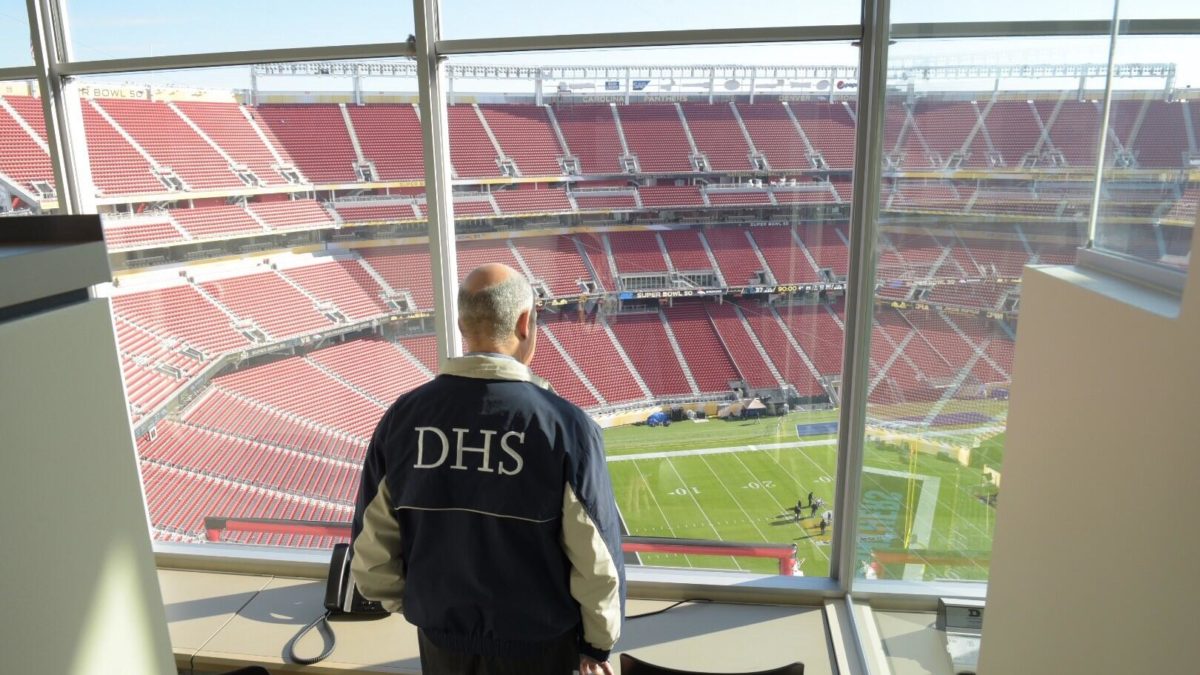
For years news outlets have tied major sporting events to an increase in sex trafficking, but researchers have now revealed that assumption is a myth and that misleading news stories foster distorted views and misguided interventions that do not reduce harm or protect victims.
Before 2018, 76% of U.S. print media helped propagate the myth of spiking numbers of sex trafficking during the Super Bowl. A new paper, published in Anti-Trafficking Review, by researchers at The University of Texas at Austin and University of Minnesota, Twin Cities, used empirical evidence to correct the media narrative linking major sporting events and sex trafficking. Their work with local stakeholders resulted in nearly 70% of local news stories evincing a skeptical view of the Super Bowl sex trafficking narrative when covering the 2018 Super Bowl.
“Informed media coverage is crucial. The public learns about trafficking primarily through the media,” said the study’s co-author, Annie Hill, an assistant professor of rhetoric and writing at UT Austin. “One of our goals was to reduce media coverage that misleads the public, so we worked with a wide range of stakeholders to create an evidence-based anti-trafficking message.” Hill and her co-author Lauren Martin worked with an Anti-Sex Trafficking Committee convened to prepare for an anticipated increase in trafficking for sexual exploitation in relation to the Super Bowl, hosted in Minneapolis. They pursued two research questions: What does the available empirical evidence say about major sporting events and trafficking for sexual exploitation? And, how should evidence inform both anti-trafficking efforts and media messaging?
Martin and Hill reviewed 55 scholarly articles on sporting events and trafficking for sexual exploitation. The evidence indicated that online ads for sex may increase in tandem with large events, such as car races, concerts and trade shows, but the Super Bowl was not distinct in this regard, despite several media reports that it is America’s biggest day for sexual slavery. Surprisingly, the evidence showed a reduction in the availability of clients during some sporting events, such as the Olympics, which may shrink commercial sex markets.
“Our main finding was that available empirical evidence did not support a causal or correlative link between Super Bowls and sex trafficking,” said Martin, associate professor in UMN’s School of Nursing. “Based on the research, we know that online ads for sex may temporarily increase when large public events take place. However, online ads are a substitute measure for trafficking and should not be understood as the same thing.”
Reviewing the media’s dissemination of the narrative that sex trafficking increases during the Super Bowl, Martin and Hill analyzed 111 print media stories and identified three main themes from 2009 to 2016.
First, there was an assumed link among Super Bowls, sex trafficking and commercial sex in 92 of the 111 articles. Second, many news stories quoted authoritative sources who supported the existing narrative and described policing or social service efforts to combat trafficking. Third, there was a tendency to report numbers — in one story, “10,000 teen hookers” — without citing evidence or a specific data source for the figures.
“The linking of sporting events and trafficking reflects broader narratives about sexuality and sexual exploitation that depict men as aggressive and autonomous, and women as victims in need of rescue or as criminals who should be arrested,” Martin said.
For the Anti-Sex Trafficking Committee, Martin and Hill wrote a report to share with the media at a press event held before the 2018 Super Bowl. They also developed a communication strategy with the committee to convey an evidence-based message, which successfully shifted coverage. Nearly 70% of Minnesota print media stories took a skeptical stance toward Super Bowl sex trafficking, in effect reversing the established tone of media coverage on this topic.


Leave a Reply